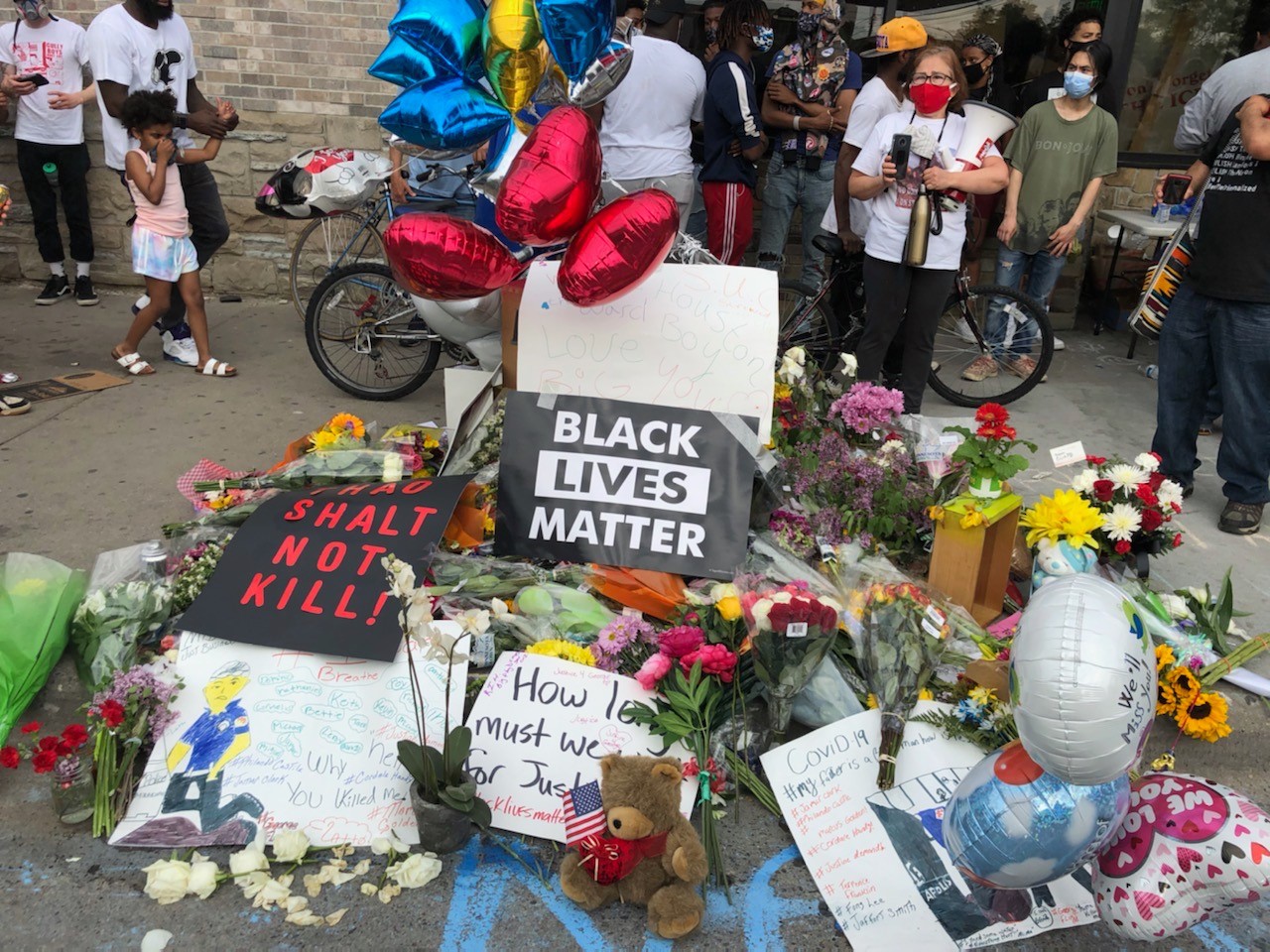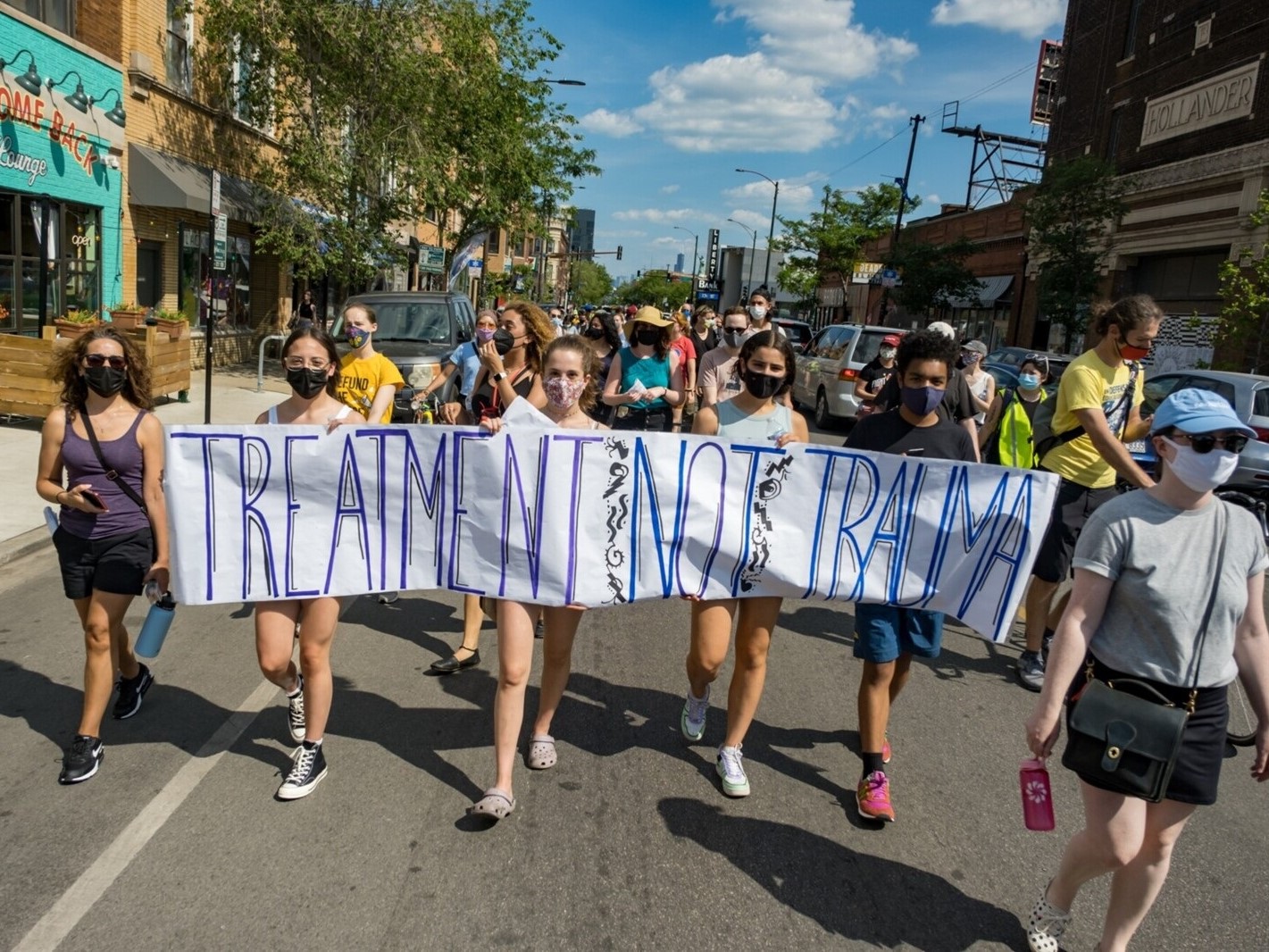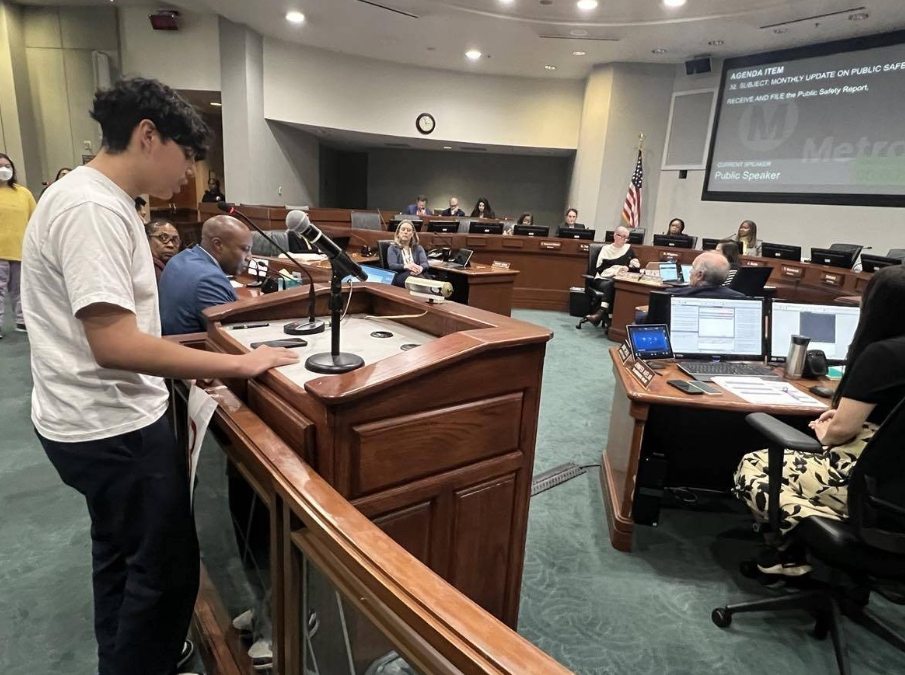
A memorial for George Floyd in Minneapolis in May 2020. Photo: Shanene Herbert
May 25, 2025, marks the fifth anniversary of the date George Floyd, a Black man, was murdered by Derek Chauvin, a white police officer, in Minneapolis. His killing—and those of Breanna Taylor, Ahmaud Arbery, and many others at the hands of police—catalyzed the largest social movement in U.S. history. Millions of people took part in Black Lives Matter protests, marches, and calls for justice across the country.
Momentum from the 2020 uprising resulted in some important reforms, such as the banning of chokeholds by police and the creation of community alternatives to police, such as mental health crisis response teams. But in the years since, many of these gains have been systematically eroded or reversed.
Earlier this month, the Pew Research Center published a survey that illustrates how the promise of meaningful change has largely gone unfulfilled. In September 2020, “52% of U.S. adults said the increased focus on issues of race and racial inequality would lead to changes that would improve the lives of Black people.” Today, five years later, 72% say that the focus on racial issues did not result in changes to help the Black community.
This change in public opinion reflects the reality on the ground. The initial push for police reform faced backlash through “tough on crime” narratives and policies during the Biden administration. Recently, the Trump administration issued an executive order that would further militarize local law enforcement and roll back federal consent decrees to hold law enforcement agencies accountable for police violence. The administration also announced it would close civil rights investigations into police departments in multiple U.S. cities.
Despite these major setbacks at the federal level, AFSC is continuing to support communities in working toward our North Star—a vision for community safety beyond policing and prisons. Here are some of the ways we are building alternatives to create community safety for all.
Chicago: Treatment Not Trauma
In Chicago, the 2020 uprising led to a citywide budget survey showing that 87% of respondents supported reallocating city resources away from police. In response, the Treatment not Trauma (TNT) campaign became one of the city’s leading movements for change.

Youth demonstrate for alternatives to policing in Chicago. Photo: Sarah Jane Rhee
AFSC has been involved with TNT for many years. Currently AFSC staff member asia smith serves as a leader in the citywide public education committee. The coalition is working to build and sustain a fully funded public health network in Chicago by:
- Establishing mobile crisis (C.A.R.E) response teams across all 50 wards. These teams would provide those experiencing mental health crises with non-police emergency medical personnel and professional mental health support workers.
- Reopening shuttered community mental health clinics across Chicago, making them available 24 hours and staffing them with trained, culturally competent professionals who can provide resources and wraparound services.
The need for these services are clear. We know that an armed response by officers can drastically escalate a crisis. The risk of being killed by police is 16 times greater for individuals with untreated mental illness than for other community members.
With proper investment, our communities can be equipped to keep each other safe—without police. This month, AFSC is launching two billboards in collaboration with TNT to raise awareness of these effective alternatives. To learn more about TNT, visit the Collaborative for Community Wellness.
Los Angeles: Reimagining transit safety
In Los Angeles, AFSC has supported community efforts to make public transportation safe for all. Following widespread protests after the murder of George Floyd, the Metro board approved a pilot transit ambassador program as part of reimagining public safety and transit policing.
Officially, these ambassadors are there to help riders—providing information on how to get around, pay fares, and support unhoused individuals with accessing resources. Unofficially, they help to de-escalate situations and have even saved numerous lives by administering Narcan to riders experiencing overdoses.
AFSC has played a key role in a campaign to remove police from the transit system and reinvest that money in fareless transit for everyone. We have supported young people in organizing for these changes by speaking out at Transit Board meetings.

Jason, an AFSC youth participant, speaks at a Metro committee meeting on public safety. (Photo: Adalberto Rios/AFSC)
But today, the struggle continues. The funding for the ambassador program was in addition to—not in place of—its existing contracts with law enforcement. Despite ongoing community advocacy, METRO still has contracts with various law enforcement agencies while developing its own in-house police department.
The police killing of George Floyd fundamentally changed public discourse around policing and safety. It created openings for conversations and policies around safety that would have been unimaginable before 2020. And yet, even where we have found success, these openings are constantly threatened by those pushing for more aggressive policing and surveillance on our already overly militarized communities.
Today, our work remains as important as ever. Despite the current presidential administration’s opposition to police accountability, AFSC is committed to working alongside communities to create real safety through public health approaches, community care networks, and non-police responses to crises. We will continue to leverage every opportunity to push for alternatives that truly serve our communities instead of militarized policing and prisons.
Five years after the murder of George Floyd, the promise of that moment has yet to be fulfilled. But our efforts to realize it will never let up.
